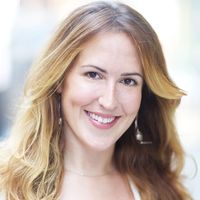
Editor's Note: The efforts of the YPJ are remarkable but Marie Claire does not condone the use of child soldiers in any capacity. This article has been edited to reflect that.
There's a group of 7,500 soldiers who have been fighting an incalculably dangerous war for two years. They fight despite daily threats of injury and death. They fight with weapons that are bigger and heavier than they are against a relentless enemy. And yet they continue to fight.
They are the YPJ (pronounced Yuh-Pah-Juh) or the Women's Protection Unit, an all-women, all-volunteer Kurdish military faction in Syria that formed in 2012 to defend the Kurdish population against the deadly attacks lead by Syrian President, Bashar al-Assad, the al-Nusra Front (an al-Qaeda affiliate), and ISIS.
In a recent BBC article, the YPJ, and their male counterpart unit, the YPG, were deemed "extraordinarily successful" in the battle to squash the growing ISIS militant force, despite limited means. The Washington Post has also weighed in on the importance and impact of the YPJ, suggesting the forces could be an effective ally to the West. Both the YPJ and YPG have also been credited with helping the U.S.-assisted effort to evacuate thousands of Yazidi refugees stranded on Mount Sinjar after ISIS invaded their towns.
Photographer Erin Trieb recently spent a week documenting members of the YPJ at several military posts in Northeastern Syria and along the Syrian-Kurdish border. She recalled to us an incident that occurred during her time there: "One morning, I heard two loud blasts, one followed by another. I asked my translator, Rama, what it was and she said, 'That's just the YPJ and ISIS saying good morning to each other.'"
So who are these women who confront some of the world's most notorious and lethal groups and why have so few in the West heard of them? We asked Trieb to share with us her experience (and photographs) of the YPJ and the harrowing words these women fighters wanted the rest of the world to hear.
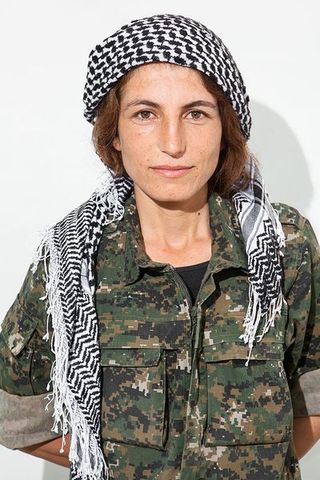
Evin Ahmed, 26. Photographed at a YPJ checkpoint-base, on the outskirts of Rabia, Kurdistan, on Aug. 7, 2014.
"We have to be free from the Syrian government," says YPJ member, Evin Ahmed, 26, (pictured above). She continues, "We need to control the area ourselves without depending on them. They can't protect us from [ISIS], we have to protect us [and] we defend everyone…no matter what race or religion they are."
Stay In The Know
Marie Claire email subscribers get intel on fashion and beauty trends, hot-off-the-press celebrity news, and more. Sign up here.
Ahmed, like many of the YPJ, is fiercely loyal to her fellow-soldiers. She insists, "I love being a YPJ soldier, I love the other soldiers, we are closer than sisters. This is the only life for me. I can't imagine living any other way." This sentiment, says Trieb, is echoed by all members of the YPJ, who live by a code of honesty, morals, and justice. "Their motto is 'Haval' or 'friendship'," explains Trieb, "and is of utmost importance to them. They treat each other (and treated me) with a sense of solidarity and sisterhood. They address each other as Haval, and when they spoke to me, they would call me 'Haval Erin'. It enforces a constant sense of belonging and support."
Several of the women, like General Zelal, 33, (pictured below) one of the leaders of YPJ, expanded upon the idea of the independence the group brings women of the region: "I don't want to get married or have children or be in the house all day. I want to be free. If I couldn't be a YPJ I think my spirit would die. Being a YPJ soldier means being free—this is what it means to truly be free."
"There is a sense among the women," says Trieb, "that the YPJ is in itself a feminist movement, even if it is not their main mission. They want 'equality' between women and men, and a part of why they joined was to develop and advance the perceptions about women in their culture—they can be strong and be leaders."
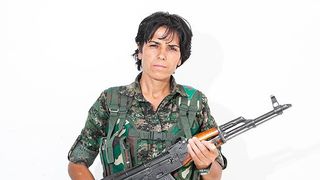
General Zelal, 33. Photographed at a YPJ checkpoint-base, on the outskirts of Rabia, Kurdistan, on Aug. 7, 2014.
Sa-el Morad, 20, (pictured below), shared with Trieb that she enlisted in order to prove that, "we can do all the same things that men can do; that women can do everything; that there's nothing impossible for us. When I was at home," she recalled, "all the men just thought that the women are just cleaning the house and not going outside. But when I joined the YPJ everything changed. I showed all of them that I can hold a weapon, that I can fight in the clashes, that I can do everything that they thought was impossible for women. Now, the men back home changed their opinions about me and other women. Now they see that we are their equals, and that we have the same abilities, maybe sometimes more than them. They understand we are strong and that we can do everything they can."
According to Trieb, the women are indeed seen as just as strong, disciplined, and committed as their male counterparts. They endure many months and levels of rigorous training in weaponry and tactical maneuvers before they are even allowed to fight. They are also wholly celebrated by their community, which Trieb notes is unexpected in a part of the world where women are often seen as inferior to men.
To some in the region, they are seen as potentially more of a threat to ISIS than male soldiers. As Trieb recalls, "The saying among many Syrian Kurds is that ISIS is more terrified of being killed by women because if they are, they will not go to heaven."
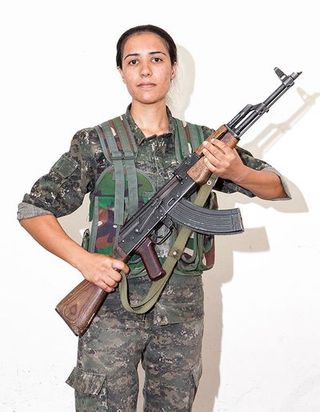
Sa-el Morad, 20. Photographed at a YPJ training base near Derek City, Syria, Aug. 20, 2014.
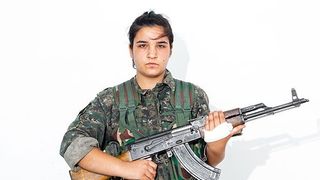
Zevin Botan, 20. Photographed at a YPJ checkpoint-base, on the outskirts of Rabia, Kurdistan, on Aug. 7, 2014.
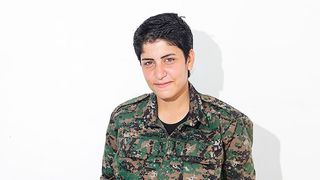
YPJ solider, Narlene, 20. Photographed at a YPJ checkpoint-base, on the outskirts of Rabia, Kurdistan, on Aug. 7, 2014.
Trieb reveals that the YPJ are also very concerned with America's perception of them, "worrying that [Americans] think we're terrorists". The YPJ soldiers would ask Trieb 'What do they Americans think of us?'. "The truth is," says Trieb, "most of the West hasn't heard of the YPJ. It was really hard to have to tell them that. Because for them, they've been fighting this war every day for almost three years, so they were shocked to hear that most Americans don't know they exist."
It is difficult to say exactly why the force is largely unknown to Americans and many western nations, though it may in part be due to the dwindling number of Western media in Syria. Historically, Trieb explains, the "YPJ has been closed off to being covered by Western media, partly in fear of how they will be portrayed in the West...." The YPJ (and YPG) have been closely linked to another Kurdish fighting force known as the Kurdistan Worker's Party or the PKK and the U.S. State Department, N.A.T.O., and the European Union have all designated the PKK a terrorist group, mainly due to its violent three-decade (1984-2013), struggle for autonomy from the Turkish State (a N.A.T.O. member). Although some have pointed out the success of the PKK in stopping ISIS, the tag still stands.
For now, the YPJ has no backing from western nations, relying mainly on their community to provide funding and supplies.
Nonetheless, the women remain committed to the YPJ and its mission and are dedicated to protecting their people. They are not at all obligated to stay, says Trieb, and all who join, remain out of loyalty. In fact, none of them sign contracts (as with most militaries) and they can leave whenever they choose. Since the YPJ exists on a volunteer basis, many of the women are also unpaid and even when supporters offer them payment in return for their service, "they will refuse the gift or donate it to the YPJ," Trieb notes.
The YPJ operates in two-week rotations on the front lines. Small groups are stationed at various observation posts all along the border of Rabia to keep the area secured, explains Trieb. Some live in abandoned Iraqi army buildings, which, as one might imagine, are run down and lack any luxuries. Often, ISIS snipers are just 500 feet away, ready to shoot. Trieb, who made these photographs using the dilapidating building walls as backdrops, remembers having to duck and run between YPJ buildings to avoid possible enemy fire.
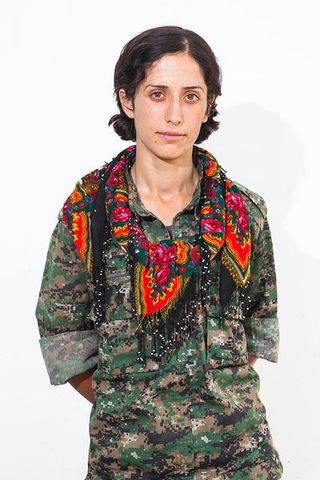
Mizguin Ronahi. Photographed at a YPJ checkpoint-base, on the outskirts of Rabia, Kurdistan, on Aug. 7, 2014.
Yet even under such intense conditions, the YPJ are always "staged and ready for conflict," Trieb says. She continues, "Some of the had their own personal cars parked outside the building so that they could quite literally 'drive' into conflict, should it erupt. They are fearless," says Trieb, "though they might not say they are. They consider fear and then they go forward anyway."
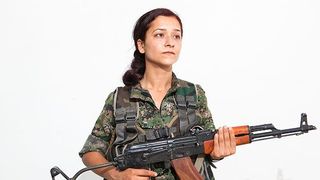
Avinar Kolcer, 26. Photographed at a YPJ checkpoint-base, on the outskirts of Rabia, Kurdistan, on Aug. 7, 2014.
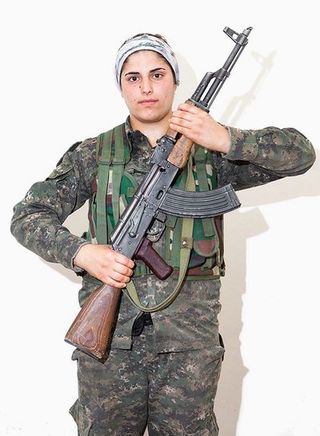
Evin Sadak, 20. Photographed at a YPJ training base near Derek City, Syria, Aug. 20, 2014.
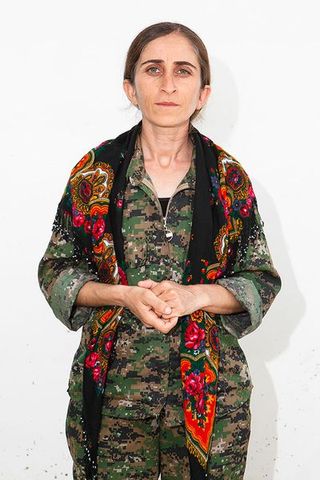
Shavin Bachouk, 26. Photographed at a YPJ checkpoint-base, on the outskirts of Rabia, Kurdistan, on Aug. 7, 2014.
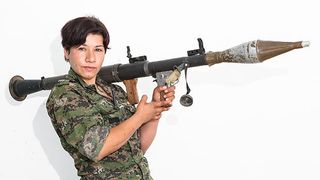
Hasrat Sahad, 23. Photographed at a YPJ checkpoint-base, on the outskirts of Rabia, Kurdistan, on Aug. 7, 2014.
In recent weeks, the YPJ has come under increased attack. Several of the women photographed by Trieb have been injured and some have been captured by ISIS.
Related:
These Women Are Fighting Back In The Middle East
The Rise of Women Entrepreneurs in the Middle East
Strategic Visual Content Editor for Hearst Digital Media, Photo Editor of Esquire.com, and staff photographer at Hearst. Basically, I am a MadLib.
-
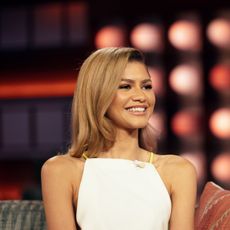 Zendaya Says Her Experiences at the Met Gala Have Been “Exciting”—But Also “Terrifying” and “Daunting”
Zendaya Says Her Experiences at the Met Gala Have Been “Exciting”—But Also “Terrifying” and “Daunting”After a five year hiatus, Zendaya will return to the Met this year as a co-chair of the event.
By Rachel Burchfield Published
-
 Jennifer Lopez Wears the Widest Wide-Leg Denim
Jennifer Lopez Wears the Widest Wide-Leg DenimShe's redefining "puddle jeans."
By Halie LeSavage Published
-
 Melanie Lynskey Says Husband Jason Ritter Is “Sacrificing” Roles for Her Career
Melanie Lynskey Says Husband Jason Ritter Is “Sacrificing” Roles for Her Career"I think a lot of men don't have that kind of self-esteem and that respect for their partner."
By Danielle Campoamor Published
-
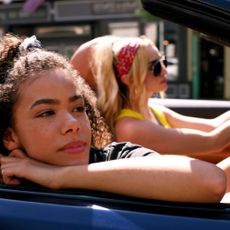 'Ginny & Georgia' Season 2: Everything We Know
'Ginny & Georgia' Season 2: Everything We KnowNetflix owes us answers after that ending.
By Zoe Guy Last updated
-
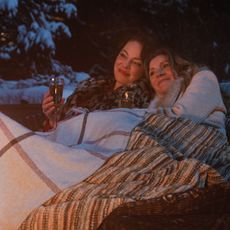 'Firefly Lane' Season 2: Everything We Know
'Firefly Lane' Season 2: Everything We KnowIn the immortal words of Tully Hart, "Firefly Lane girls forever!"
By Andrea Park Published
-
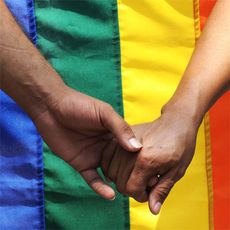 31 Different Pride Flags and What Each Stands For
31 Different Pride Flags and What Each Stands ForInclusivity matters.
By Katherine J. Igoe Published
-
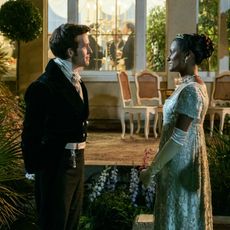 'Bridgerton' Season 2: Everything We Know
'Bridgerton' Season 2: Everything We KnowThe viscount and his new love interest hit Netflix at the end of March.
By Andrea Park Published
-
 'Bachelor In Paradise' 2021: Everything We Know
'Bachelor In Paradise' 2021: Everything We KnowIt's back, baby!
By Andrea Park Published
-
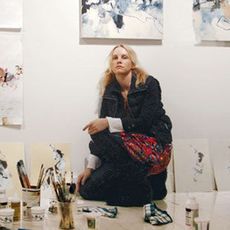 More Than A Pretty Face: Anna Schuleit
More Than A Pretty Face: Anna SchuleitGerman-born artist Anna Schuleit went from anonymous to Einstein virtually overnight, thanks to a call from the MacArthur Foundation announcing that she'd won a 2006 "Genius" grant for $500,000.
By Katherine Turman Published
-
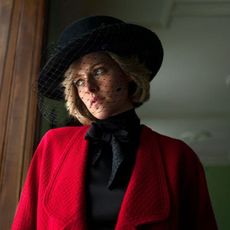 'Spencer,' the Princess Diana Movie: Everything We Know
'Spencer,' the Princess Diana Movie: Everything We Know"Every fairy tale ends."
By Andrea Park Published
-
 Who is Abigail Heringer From 'The Bachelor' and 'Bachelor in Paradise'?
Who is Abigail Heringer From 'The Bachelor' and 'Bachelor in Paradise'?The 25-year-old, who first appeared on Matt James' season, is a financial analyst with an inspiring backstory.
By Andrea Park Published